When I was a little kid, I was convinced that I’d given myself “head cancer” after hitting my head on the bottom of a baby pool one day, as I share Is Fred in the Refrigerator? Taming OCD and Reclaiming My Life:
After that day, my eight-year-old mind increasingly preoccupied itself with that fear of dying. But I hadn’t known what to do with it. There hadn’t seemed to be anything to do with it, so I’d lived my life—in the classroom, on the school bus, with friends, at home—terror-stricken. So much so that on the day my second-grade teacher talked about my class advancing into third grade, I thought with sickening surety that I’d be in a small coffin, lifeless, by that time. Because why would I think such thoughts about dying, if they weren’t going to come true? p. 28
I have come a long way since that time thanks to the gold standard treatment for OCD, exposure and response prevention (ERP) therapy. In this post I’d like to share with you the ERP tools I employ when my health anxiety/OCD is triggered, using something that happened to me recently as an example.
Here’s the background to give you some context: I’ve had GERD, or acid reflux, for at least two decades. It runs in my family, I manage it mostly by not eating things that make it worse and taking over-the-counter meds if I have a flare up. And recently it had been flaring up spectacularly. In fact, in the middle of the night a few months ago I woke up with so much pain, nausea, and vomiting that I ended up in the ER, where they didn’t find anything wrong with me other than….you guessed it….reflux. But they did want me to follow up with a specialist after I was discharged.
This is the type of situation that would have sent my OCD through the roof in the past. While it definitely made OCD louder in the days following my ER visit, I’ve been using the following skills to remind OCD who’s in charge:
Listen to the doctor, not to OCD.
After our trip to the ER, my OCD was convinced that I had some type of terminal illness, especially because I had several pretty severe stomach flare ups in the months leading up to my ER visit. And even though the doctors did CT scans, chest x-rays, a ton of blood work, and an ultrasound in the ER, all of which showed nothing wrong, OCD was still worried. Therefore, it did and did not want me to go to the gastroenterologist. OCD wanted me to go because it wanted reassurance. It didn’t want me to go because it knew that it might not get any.
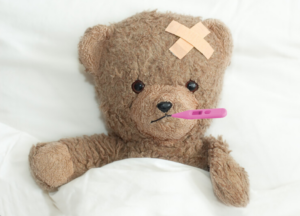 But I went anyway, because that’s what the ER doc said to do (listen to the doctor, not OCD). And I was relatively anxious going into the appointment, especially because I do know someone who lost their life recently to a GI cancer that came out of nowhere. After reviewing the ER records, the GI doc said she didn’t know what was going on, but it was likely something related to my reflux or perhaps I have a gall bladder issue, although she didn’t think that was likely. I debated over whether or not to ask her if she thought it could be cancer (as I have no idea what the symptoms of that would be…more on that below), and decided to ask one time and trust whatever she said. She said she didn’t think it was cancer, but that she did think I needed to be on prescription reflux meds and to have an endoscopy.
But I went anyway, because that’s what the ER doc said to do (listen to the doctor, not OCD). And I was relatively anxious going into the appointment, especially because I do know someone who lost their life recently to a GI cancer that came out of nowhere. After reviewing the ER records, the GI doc said she didn’t know what was going on, but it was likely something related to my reflux or perhaps I have a gall bladder issue, although she didn’t think that was likely. I debated over whether or not to ask her if she thought it could be cancer (as I have no idea what the symptoms of that would be…more on that below), and decided to ask one time and trust whatever she said. She said she didn’t think it was cancer, but that she did think I needed to be on prescription reflux meds and to have an endoscopy.
So I left her office, started taking my new meds, scheduled my endoscopy, and proceeded to the next step below.
Embrace the uncertainty through ERP.
I was trusting the doctor that this wasn’t cancer, but my OCD wasn’t convinced. So for several weeks, I did proactive ERP scripting in the shower every day: “I may or may not (MOMN) have stomach cancer. I MOMN have esophageal cancer. I MOMN have cancer in any part of my body. I MOMN die tomorrow. The doctor MOMN be wrong. The endoscopy MOMN find something terrible.” Etc. Etc. Etc.
As I described in my blog post on using MOMN statements to interrupt the cycle of mental rituals, I’m doing these scripts to force OCD to face these scary thoughts without doing any mental compulsions. The ultimate goal of this exercise is to help OCD recognize that this isn’t about having cancer. It’s instead about not knowing whether I have cancer. OCD is not about the content (cancer, in this case). It’s about uncertainty, ie, not knowing the answer to OCD’s what if questions (which are almost always unanswerable). I use the ERP scripts to turn OCD’s content against it in the service of helping OCD come to terms with the fact that this—like almost everything in life—is uncertain, and we’re just going to accept that.
Understand the power of suggestion.
Knowing that health issues are top triggers for my OCD, I was prepared for it to try to get me to do subtle symptom checking compulsions so that OCD could assess (with the medical degree it thinks it has) whether or not I’m on death’s door. Let me give you an example. The doctor told me that if I had a gall bladder issue, I would be having pain mostly in the right upper quadrant of my abdomen. However, my pain is more generalized when I’m having an episode, which is why the doctor thought it’s less likely my gall bladder was the culprit.
But I kid you not, a week or so after my appointment with the doctor, I suddenly felt a strange sensation in the upper right quadrant of my abdomen. It felt like a stitch in my side that happened sometimes after running, but in the wrong place.
OCD immediately said, “See! See! It IS a gall bladder issue! Maybe it’s going to burst! Maybe we’re going to die today! Maybe you should go get it checked right now!”
I recognized that this could very well be a real symptom that needs attention. Or it could be my OCD suggesting a symptom which isn’t really there, but which I think is there because I’m overly focused on that area. Or it could be that a slight symptom is there and I’m listening to my OCD’s worries and making the symptom worse by thinking about it too much.
The point is …. it’s uncertain! But there’s a possibility that OCD’s reaction to whatever is happening in my body could be making that symptom worse. So I move on to the next step, which is…
Make rules and follow them.
 With the awareness of what could be happening with my OCD’s mind-body connection, I decided that if the pain was there in 24 hours, I would email my doctor and tell her about the symptom and follow her advice. But until that time, I was going to go on with my day.
With the awareness of what could be happening with my OCD’s mind-body connection, I decided that if the pain was there in 24 hours, I would email my doctor and tell her about the symptom and follow her advice. But until that time, I was going to go on with my day.
Which I did. And although it took many hours, the weird sensation did finally go away.
I’m not a doctor, so I don’t know if that was the right rule to make and follow, but it seemed reasonable to me. If I’d struggled with this decision, I could have followed another longstanding rule that I have: I can ask one friend or family member (and no more, otherwise I’m reassurance seeking) if they agree with my rule/plan and then follow their advice.
Limit internet searches.
Like I mentioned above, I have no idea what the symptoms for stomach cancer or esophageal cancer are. Nor do I need to know. No matter what my OCD says, I am not going to look those up, because doing so would be a compulsion.
Does this mean I can’t search at all to learn about my medical condition? No, it’s not black and white. I did look up “gall bladder disease” when my doctor told me that could be my problem, but I made a rule and followed it: I can look at one page about it on a reputable site. I read the Mayo Clinic page on gall bladder disease, did not click on any of the links in the article (including the one for gall bladder cancer), and then went on with my day.
Know that results do not equal reassurance.
 As of the writing of this post, I’m waiting on biopsy results from my endoscopy. In the past, I would have spent the 7 to 10 days of waiting filled with fear, because my OCD would have been constantly whispering, “This is it! This is when we’ll learn that something is terribly wrong! We can’t do anything else but focus on this until we know for sure we’re ok! We need to stay hypervigilant as that will somehow make it less likely the test results will be bad!!”
As of the writing of this post, I’m waiting on biopsy results from my endoscopy. In the past, I would have spent the 7 to 10 days of waiting filled with fear, because my OCD would have been constantly whispering, “This is it! This is when we’ll learn that something is terribly wrong! We can’t do anything else but focus on this until we know for sure we’re ok! We need to stay hypervigilant as that will somehow make it less likely the test results will be bad!!”
Then, when I’d receive results showing that whatever they tested was fine, my OCD would fall on the floor in relief and tell me, “WHEW! That was a close one. We almost died but now we know we’re perfectly fine so we can finally enjoy life now that we know we’re in perfect health!”
This is the seesaw OCD puts those of us with health anxiety issues on: either we’re completely healthy or about to die. But real life isn’t like that. Most of the time (especially as we get older and have more health issues) we’re living somewhere in the middle of the health continuum: in some areas we’re doing well, some areas we’re doing not so well, and all the rest are in-between.
I won’t allow myself to get stuck on OCD’s seesaw now, as I tell both OCD and myself the following:
I’ll get these tests results back, and they will be what they will be. If the results are good, they are good in that moment in time. It doesn’t mean that I’m perfectly healthy, as I may or may not have other things going on that we haven’t caught yet. If the results are bad, well, then I’ll follow the doctor’s advice about how to address them. I’m not going to stop living my life every time I have an uncertainty about my health, OCD, as my goal is to live in a world of uncertainty in a body that’s also filled with uncertainty, and be happy anyway.
Let go and let God.
I love this saying from Alcoholics Anonymous, and I referenced its truth in the paragraph above: things will be as they are going to be. I cannot change what test results will say. I cannot change what’s happening in my body other than by following my doctor’s recommendations, and even then, what the doctor tells me to do may or may not work.
In other words, I am not God, and I’m not going to let OCD be God either.
Letting go and surrendering to a higher power doesn’t mean that we don’t do our parts—going to doctor’s appointments, following recommendations, educating ourselves in non-compulsive ways, advocating for ourselves when necessary. However, we’re also stepping back and recognizing that we don’t have much (if any) control in the situation. And it’s in the combination of doing your part while also surrendering control of the outcome where you can find a surprising and almost ironic degree of freedom.
Also, check out this new book, co-authored by my friend and colleague Dr. Josh Spitalnick, who runs Anxiety Specialists of Atlanta. My Everyday Mindfulness for OCD co-author gave it his enthusiastic endorsement:
“This is the most fun I’ve had being constantly reminded I’m going to die. Spitalnick and Stier have put together a smart, clear, and truly accessible guide to overcoming health anxiety in its many forms … I question their wisdom of teaching readers how to think like anxiety specialists. This book could put them out of a job.”
—Jon Hershfield, LCMFT, director of the Center for OCD and Anxiety at Sheppard Pratt
Learn more about taming OCD
Sign up for my Shoulders Back! newsletter to receive OCD-taming tips & resources, including notifications of new blog posts, delivered every month to your inbox.
My blogs are not a replacement for therapy, and I encourage all readers who have obsessive compulsive disorder to find a competent ERP therapist. See the IOCDF treatment provider database for a provider near you. And never give up hope, because you can tame OCD and reclaim your life!
Picture credits: Teddy bear (c) Can Stock Photo / EnjoyLife; Seesaw (c) Can Stock Photo / Tonpicknick; Make rules (c) Can Stock Photo / eenevski

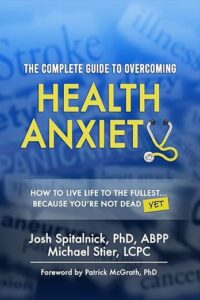


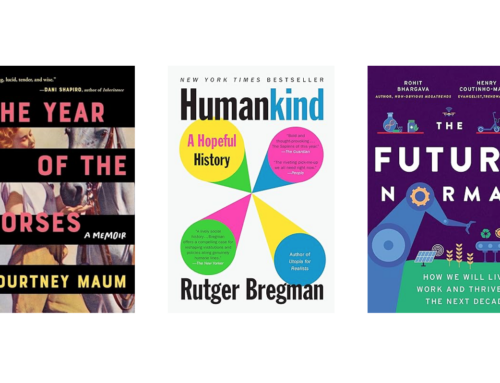

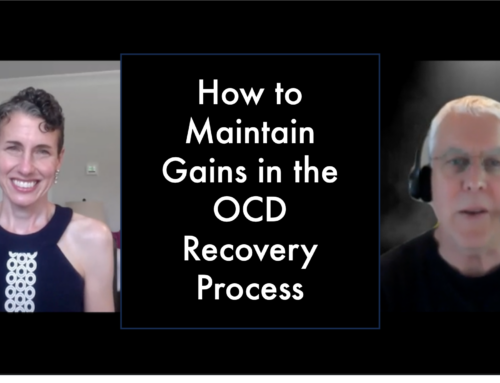
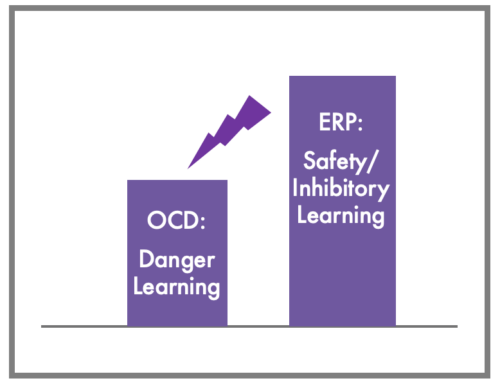
Appreciate your story. Find the tips provided very helpful for handling health anxiety/OCD. Thank you.
I have been practicing similar steps and it has been helpful in getting my life/mind back from health OCD. The key mantra for me is: no safety behavior including no googling (the worst). It is not easy but gets easier as I practice more and also changing my perspective to body sensations was helpful (i.e. being non-reactive to sensations and be curious/act first time every time they show up).
I liked your reference that OCD is not God and any OCD ritual won’t change the end result.
Regards,
H Thind
I think we may be twins….this is me, to a T. And as is almost everything in your book– growing up and into adulthood, all almost exactly the same obsessions and issues. Thank you! Really helpful reminders. That’s an understatement!
Thanks for sharing such a nice post with us. It is very informative and helpful for us.